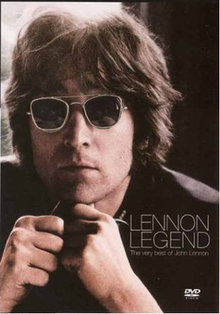
Yoko Ono is a Japanese multimedia artist, singer, songwriter, and peace activist. Her work also encompasses performance art and filmmaking.
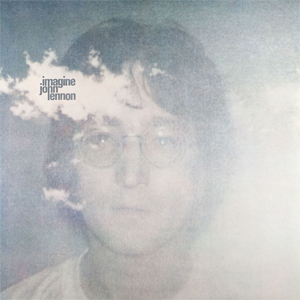
Imagine is the second solo studio album by English musician John Lennon, released on 9 September 1971 by Apple Records. Co-produced by Lennon, his wife Yoko Ono and Phil Spector, the album's elaborate sound contrasts the basic, small-group arrangements of his first album, John Lennon/Plastic Ono Band (1970). The opening title track is widely considered to be his signature song.

Some Time in New York City is the third collaborative studio album, and first live album by John Lennon and Yoko Ono as Plastic Ono Band, a double album, it includes backing by the American rock band Elephant's Memory. Released in June 1972 in the US and in September 1972 in the UK on Apple Records, it is Lennon's sixth album to be released under his own name, and his fourth collaboration with Ono. Like Lennon's previous solo albums, it was co-produced by Lennon, Ono and Phil Spector. The album's agitprop lyrics are politically charged compared to its predecessors, addressing political and social issues and topics such as sexism, incarceration, colonialism, and racism.
"How Do You Sleep?" is a song by English rock musician John Lennon from his 1971 album Imagine.

The Rolling Stones Rock and Roll Circus is a British concert film hosted by and featuring the Rolling Stones, filmed on 11–12 December 1968. It was directed by Michael Lindsay-Hogg, who proposed the idea of a "rock and roll circus" to Jagger. The show was filmed on a makeshift circus stage with Jethro Tull, The Who, Taj Mahal, Marianne Faithfull, and the Rolling Stones. John Lennon and his fiancee Yoko Ono performed as part of a one-shot supergroup called The Dirty Mac, featuring Eric Clapton on guitar, Mitch Mitchell on drums, and the Stones' Keith Richards on bass. The recently formed Led Zeppelin had been considered for inclusion, but the idea was rejected.

"Happy Xmas (War Is Over)" is a Christmas song released in 1971 as a single by John & Yoko/The Plastic Ono Band with the Harlem Community Choir. It was the seventh single released by John Lennon outside his work with the Beatles. The song reached number four in the UK, where its release was delayed until November 1972, and has occasionally re-emerged on the UK Singles Chart, most notably after Lennon's murder in December 1980, when it peaked at number two.

A bed-in is a nonviolent protest against wars, initiated by Yoko Ono and her husband John Lennon during a two week period in Amsterdam and Montreal as an experimental test of new ways to promote peace. As the Vietnam War raged in 1969, artist Ono and Lennon held one bed-in protest at the Hilton Hotel in Amsterdam and one at the Queen Elizabeth Hotel in Montreal. The idea is derived from a "sit-in", in which a group of protesters remain seated in front of or within an establishment until they are evicted, arrested, or their requests are met.
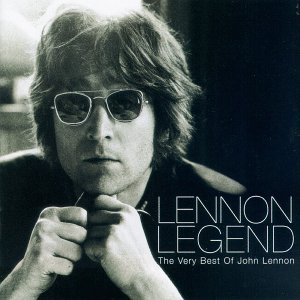
Lennon Legend: The Very Best of John Lennon is the third official compilation album of John Lennon's solo career, coming after 1975's Shaved Fish and 1982's The John Lennon Collection. Because neither collection spanned Lennon's releases up to and including 1984's Milk and Honey, Lennon Legend: The Very Best of John Lennon – considered the definitive Lennon retrospective – was compiled. It was released in the UK in 1997 on EMI's Parlophone and early 1998 in the US.
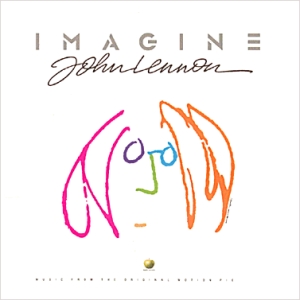
Imagine: John Lennon is a soundtrack album of popular music compiled for the 1988 documentary film Imagine: John Lennon from songs written or co-written by John Lennon. Originally released that year as a double album, it now remains available on one CD.

Fly is the second album by Yoko Ono, released in 1971. A double album, it was co-produced by Ono and John Lennon. It peaked at No. 199 on the US charts.
Imagine is a 1972 feature-length music film by John Lennon and Yoko Ono, filmed at their Tittenhurst Park home in Ascot, England, and in various locations in London and New York between May and September 1971. All the songs from Lennon's 1971 Imagine album appear in the soundtrack, and also the songs "Mrs. Lennon", "Mind Train", "Don't Count the Waves" and "Midsummer New York" from Ono's 1971 album FLY.

"Woman" is a song written and performed by English singer John Lennon from his 1980 album Double Fantasy. The track was chosen by Lennon to be the second single released from the Double Fantasy album, and it was the first Lennon single issued after his murder on 8 December 1980. The B-side of the single is Yoko Ono's song "Beautiful Boys".

"Nobody Told Me" is a song by John Lennon. The B-side features Yoko Ono's "O' Sanity"; both are on the Milk and Honey album. The promo video for the single was made up of clips of footage from Lennon's other videos, as are most posthumous Lennon videos.
Simon Hilton is an English music video, concert and documentary director and editor and multimedia creative based in London.
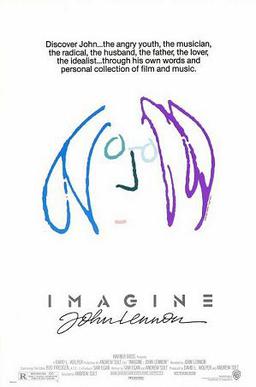
Imagine: John Lennon is a 1988 documentary film about English musician John Lennon. It was released on 7 October 1988, two days before Lennon's 48th birthday.

"Imagine" is a song by the English musician John Lennon from his 1971 album of the same name. The best-selling single of his solo career, the lyrics encourage listeners to imagine a world of peace, without materialism, without borders separating nations and without religion. Shortly before his death, Lennon said that much of the song's lyrics and content came from his wife, Yoko Ono, and in 2017, she received a co-writing credit.

"Mrs. Lennon" is Yoko Ono's first single from her second studio album Fly, released in 1971. It was written and performed by Ono, and produced by Ono and her husband John Lennon. It includes the B-side "Midsummer New York". "Mrs. Lennon" was featured in the 1972 film Imagine.

Erection is a 1971 short film by John Lennon and Yoko Ono with music by Ono.
John & Yoko: Above Us Only Sky is a documentary film that aired on Channel 4 in November 2018 and the A&E Network in March 2019. The focus of the documentary is John Lennon's and Yoko Ono's relationship up to that point and how it impacted the Imagine album recorded in 1971 at their Tittenhurst Park home in Ascot, England. Video footage not previously presented to the public is made available. Present day interviews with former bandmates and others involved in Lennon's and Ono's lives at the time are included in the film.

The John Lennon Video Collection is a music video album compilation that was released on VHS, VCD and LaserDisc in October 1992 in the US, UK, Europe, Australia and New Zealand as a collection of old and new promotional videos.
